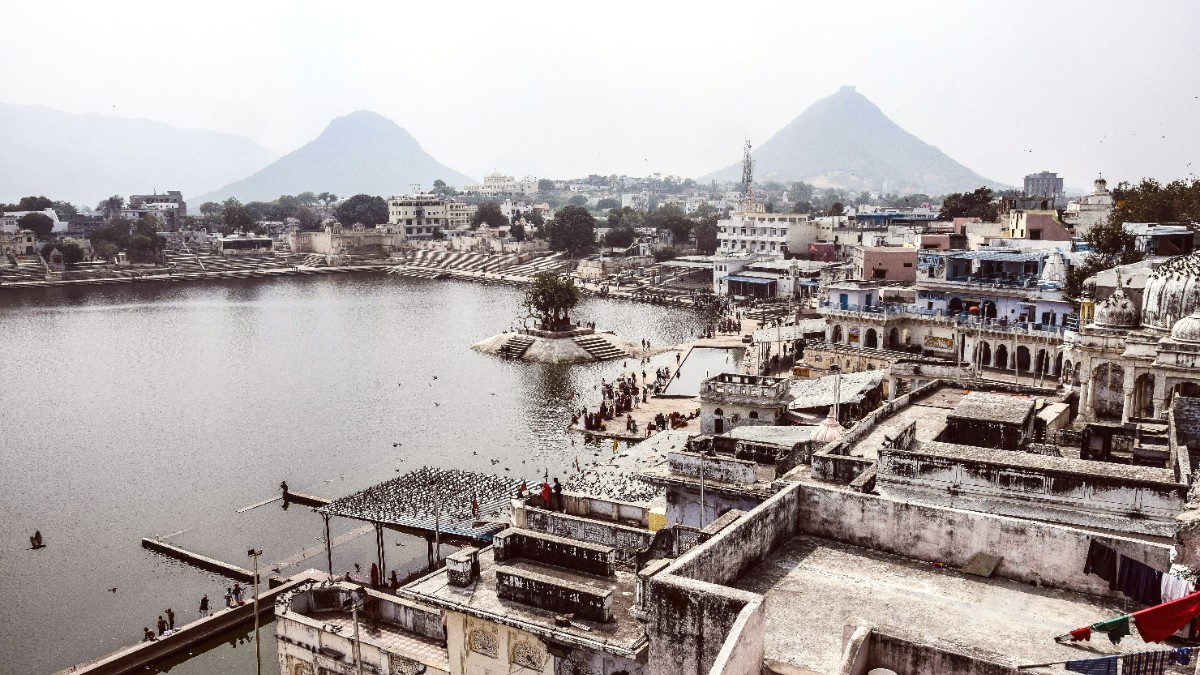
Rajasthan, India
Pushkar's main attractions—the sacred lake, Brahma Temple, and bustling market—are compact and best explored by walking. The town itself does not have an internal metro, tram, or extensive local bus system. The main form of public transportation connects Pushkar to Ajmer.
These are typically government-run buses operated by the Rajasthan State Road Transport Corporation (RSRTC). They offer a very economical way to travel between the two towns.
In Pushkar, the local bus stand is the main hub for buses to Ajmer. In Ajmer, Sindhi Camp serves as the central hub for intercity and local routes.
Public buses in India are not generally designed for wheelchair accessibility. Travelers with mobility needs may find navigation difficult.
For the Pushkar-Ajmer route, head directly to the Pushkar bus stand. Buses depart regularly.
Be clear about your destination and agree on fare beforehand. Be aware of drivers who may suggest specific shops for commission.
Book through reputable hotels or tour operators for longer distances or tours.
Prepaid taxi counters at Ajmer Railway Station or Kishangarh Airport offer fixed fares to Pushkar.
Always carry small denominations for ease of payment with drivers.
Rental options range from scooters to bicycles, each offering a different way to experience the area.
Pushkar's core areas are highly pedestrian-friendly. The central market, the path around Pushkar Lake (Parikrama Marg), and the various ghats are best explored on foot.
Many local guides offer walking tours for insights. Self-guided walks are easy with a simple map. Generally, no "no-go" areas during daylight hours; the town is welcoming.
Pushkar lacks dedicated bicycle lanes. Cycling is popular for exploring the town and nearby rural areas. Exercise caution due to traffic, pedestrians, and uneven roads.
Choosing the right transport options makes a significant difference in your Pushkar experience.
Consider your comfort, budget, and desired pace of travel when making your choices.